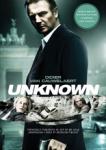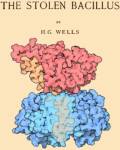
Our friend, and narrator, William Coon has a wonderful new collection of C.M. Kornbluth short stories available through OverDrive, NetLibrary and Audible.
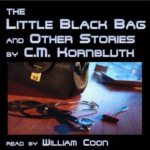 The Little Black Bag and Other Stories
The Little Black Bag and Other Stories
By C.M. Kornbluth; Read by William Coon
WMA, MP3 or Audible Download – Approx. 4 Hours 2 Minutes [UNABRIDGED]
Publisher: Eloquent Voice
Published July 15, 2011
ISBN: 9780983089865 (retail), 9780983089865 (library)
Although C.M. Kornbluth died an untimely death at age 34, in his short career he managed to write dozens of short stories and a number of novels, often collaborating with other writers. The five stories in this collection are all his own, and show a writer at the height of his powers. In “The Little Black Bag” (1950) a disgraced physician finds salvation in a high tech doctor’s bag that has inadvertently been transported from the future. “The Altar at Midnight” (1952) explores an unintended consequence of space flight, where astronauts become physically deformed by their work in space, thus making them outcasts back on Earth. “MS Found in a Chinese Fortune Cookie” (1957) presents a humorous tale of a writer who finds enlightenment but ends up in an insane asylum. “The Adventurer” (1953) is a tale of political intrigue, in a future where our Republic has become a dynasty for one ruling family. In “The Marching Morons” (1951), a follow-up to “The Little Black Bag,” a 20th Century man awakes in a distant future, where intelligence has been mostly bred out of humanity.
Here’s an interesting sounding mini-collection from a small publisher never before mentioned on SFFaudio…
 A Dollar for Your Soul and The Vision Vine
A Dollar for Your Soul and The Vision Vine
By Earl Vickers; Read by Derrick Barrett
1 CD or Download – Approx. 60 Minutes [UNABRIDGED?]
Publisher: 3Daudioscapes.com
Published: 2010
Featured in this collection are two short stories, “A Dollar for Your Soul” and “The Vision Vine” “A Dollar For Your Soul” – Based on a true story about a high-school soul-selling pyramid scheme, this story is a timeless look at Ponzi schemes and the madness of crowds. It was originally published in Marion Zimmer Bradley’s Fantasy Magazine, and a Russian translation appeared in Yesly (“If”) magazine (voted Europe’s best science fiction magazine). “The Vision Vine” is a short story about a tribal culture in conflict with modern civilization. A young boy journeys to a strange virtual world and attempts to bring the two worlds together. This story originally appeared in Whole Earth Review and has also been published in Russian and Japanese
This sounds like an excellent audiobook…
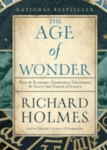 The Age Of Wonder: How The Romantic Generation Discovered The Beauty And Terror Of Science
The Age Of Wonder: How The Romantic Generation Discovered The Beauty And Terror Of Science
By Richard Holmes; Read by Gildart Jackson
17 CDs – Approx. 20.4 Hours [UNABRIDGED]
Publisher: Blackstone Audio
Published: July 1, 2011
ISBN: 9781455114320
The Age of Wonder is a colorful and utterly absorbing history of the men and women whose discoveries and inventions at the end of the eighteenth century gave birth to the Romantic Age of science. When young Joseph Banks stepped onto a Tahitian beach in 1769, he hoped to discover Paradise. Inspired by the scientific ferment sweeping through Britain, the botanist had sailed with Captain Cook in search of new worlds. Other voyages of discovery—astronomical, chemical, poetical, philosophical—swiftly follow in Richard Holmes’ thrilling evocation of the second scientific revolution. Through the lives of William Herschel and his sister, Caroline, who forever changed the public conception of the solar system; of Humphry Davy, whose near-suicidal gas experiments revolutionized chemistry; and of the great Romantic writers, from Mary Shelley to Coleridge and Keats, who were inspired by the scientific breakthroughs of their day, Holmes brings to life the era in which we first realized both the awe-inspiring and the frightening possibilities of science—an era whose consequences are with us still.
I’ve wanted to get my hands on this book for about 20 years, I’ve heard things about it…
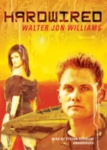 Hardwired
Hardwired
By Walter Jon Williams; Read by Stefan Rudnicki
10 CDs – Approx. 11.7 Hours [UNABRIDGED]
Publisher: Blackstone Audio
Published: July 1, 2011
ISBN: 9781433253065
In Walter Jon Williams’ classic cyberpunk novel, the remnants of a war-ravaged America endure in scattered, heavily armed colonies, while the wealthy Orbital Corporations now control the world. Cowboy, an ex-fighter pilot who has become “hardwired” via skull sockets directly to his lethal electronic hardware, is now a panzerboy, a hi-tech smuggler riding armored hovertanks through the balkanized countryside. He teams up with Sarah, an equally cyborized gun-for-hire, to make a last stab at independence from the rapacious Orbitals. Together, they gather an unlikely gang of misfits for a ride that will take them to the edge of the atmosphere.
For the first time on audio… but I’ve read this, I have the paperback. I know I have read it. But for the life of me I cannot remember it at all. Which is doubly odd given the premise of the story: The main character is missing his memories!!!
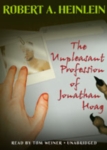 The Unpleasant Profession Of Jonathan Hoag
The Unpleasant Profession Of Jonathan Hoag
By Robert A. Heinlein; Read by Tom Weiner
4 CDs – Approx. 4.3 Hours [UNABRIDGED]
Publisher: Blackstone Audio
Published: July 1, 2011
ISBN: 9781433265815
Jonathan Hoag has a curious problem. Every evening, he finds a mysterious reddish substance under his fingernails, with no memory of how it got there. Jonathan hires the husband-and-wife detective team of Ted and Cynthia Randall to follow him during the day and find out. But Ted and Cynthia find themselves instantly out of their depth. Jonathan leaves no fingerprints. His few memories about his profession turn out to be false. Even stranger, Ted and Cynthia’s own memories of what happens during their investigation do not match. There is a thirteenth floor to Jonathan’s building that does not exist, there are mysterious and threatening beings living inside mirrors, and all of reality is not what they thought it was. Part supernatural thriller, part noir detective story, Heinlein’s trip down the rabbit hole leads where you never expected.
Posted by Jesse Willis

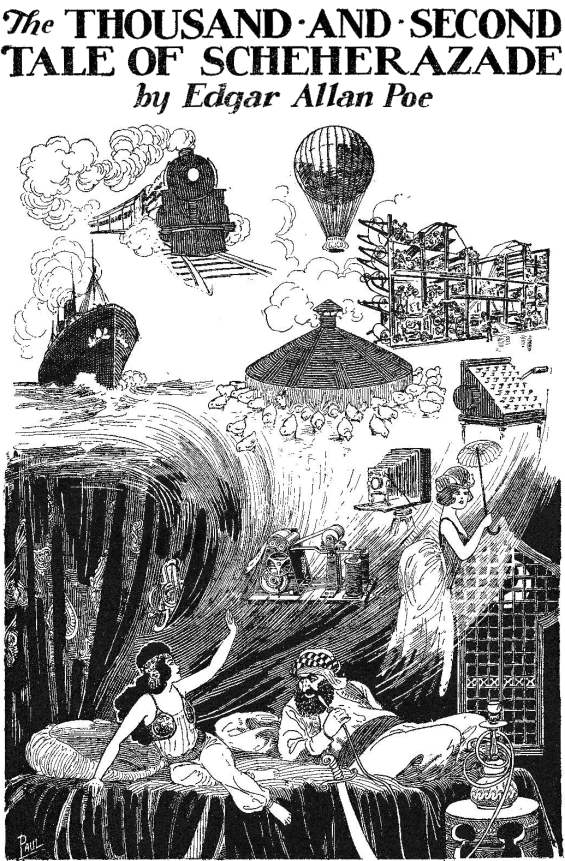
 The Thousand-And-Second Tale Of Scheherazade
The Thousand-And-Second Tale Of Scheherazade

